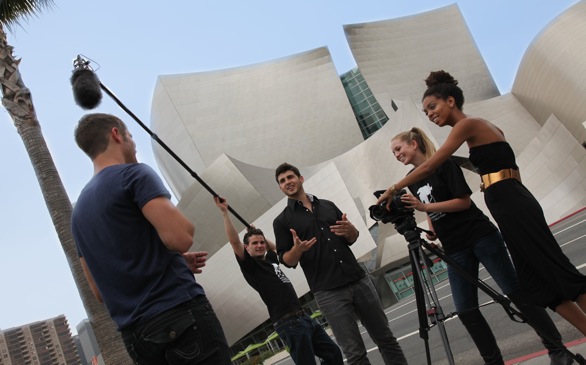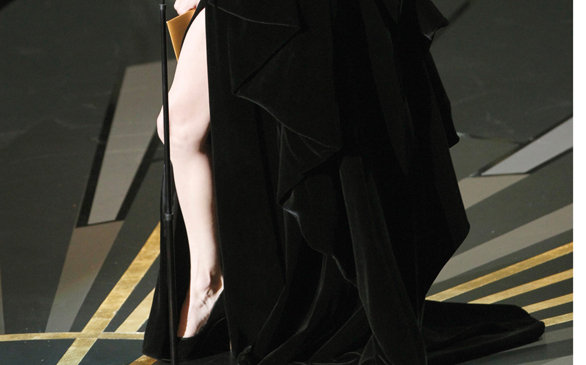It’s a mystical and far off land, where people from all walks of life dream of coming and launching their career as a big-time film director. Sound familiar? Of course it does, because in this town, you’re probably one of them. I know I was.
Los Angeles is the town where the person sitting next to you is aspiring to be the next Christopher Nolan or Charlie Kaufman. You have the motivation; but are you a film school yuppie or are you a film school reject?
You can spend hours comparing directors who chose not to attend film school (Steven Spielberg, Quentin Tarantino, David Fincher) to those who did (George Lucas, Francis Ford Coppola, Martin Scorsese). However, there’s nothing wrong with attending film school so you can at least learn the basics before you venture off on your own.
An artist in her own right is writer/director Bianca Smith. She toyed around with strange, experimental shorts long before deciding to attend the Los Angeles Film School (LAFS). With a possible BAFTA nomination in the works for her thesis film, By The Time You Read This, Smith believes it all begins with being a filmmaker at heart. Without a passion for the craft, it won’t matter what school you attend.
“No matter how talented or creative an artist is, it always helps to learn proper technique. To be an artist, who doesn’t abide by traditional rules is fantastic: these are the artists we love the most. But you have to know the rules to break them,” said Smith.
Residence to some of the country’s finest film schools such as UCLA, USC, American Film Institute (AFI) Conservatory, Cal Arts, LAFS and the International Academy of Film and Television (IAFT), Los Angeles is full of options. But rest assured; there is a distinct school for each individual.
In the near six decades of cross-town rivalry between UCLA and USC, there is one rivalry that surpasses football: film. These two have been differentiated as the “indie filmmakers” (UCLA) and the “studio filmmakers” (USC). However, the two aren’t as different as you think. Both teach animation, screenwriting for motion pictures and television, producing, cinema and media studies, and interactive media. Unlike some other film schools, UCLA and USC understand the importance of teaching the social, political, economic and aesthetic impact of film.
UCLA also has a great program called Elevate, a student organization that promotes diversity among students and faculty as well as the Samuel Goldwyn Awards, which encourages young stage, film and TV writers with cash incentives.
Known for its “100 Years…100 Movies” list and the AFI Festival, AFI Conservatory has become one of the most selective film schools in all of Los Angeles. Who can blame them with alumni such as Wally Pfister, Terrence Malick and David Lynch? Out of hundreds of applicants each year, AFI will only accept 28 (each) in the producing, directing, cinematography and screenwriting category, and 14 in editing and production design. Although competitive to get in, AFI is a great place for filmmakers who have already worked in the film industry and wish to further their knowledge in one particular discipline.
If undecided, LAFS located in the heart of Hollywood may be your best bet. Founded in 1999, LAFS has established itself with its speedy 12 or 18-month A.A programs in film, game production, computer animation and recording arts. Students get hands-on experience with state-of-the-art equipment, learn set protocol and get a taste of all film departments. LAFS is quietly breeding a new pool of talented filmmakers that won’t stay quiet for very long.
For those looking for a change of scenery, look no further than the IAFT, which offers certificate and diploma programs in film making, digital animation and performing arts over the course of 10 months. With four beautiful campuses to choose from, Los Angeles, Miami, Hong Kong and Cebu in the Philippines, students are able to learn film making and enjoy what each city has to offer.
Whether attending film school is a necessity or not, the hard truth about success in this industry is perfectly expressed by Drew Kowalski, another LAFS graduate: “If you want to make it in this industry, you need to reach out and take it for yourself. No one will be there to hand you jobs or help you, so you have to learn to help yourself. Having a degree from the Los Angeles Film School, or any school for that matter, will not guarantee you a job in the industry. Hard work, perseverance, professionalism and strong networking skills are going to land you jobs.”











